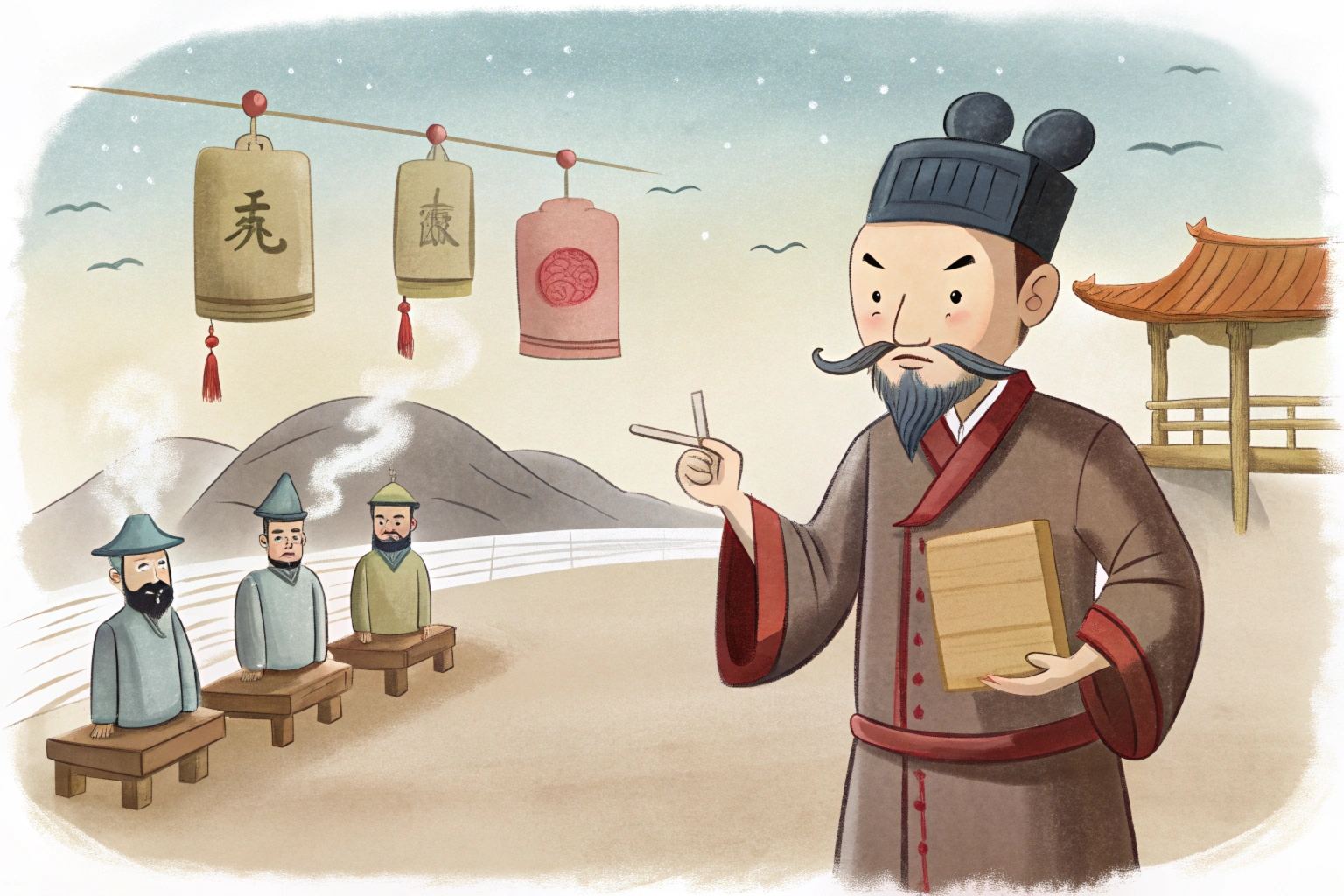Disciplinary Instructions - Disciplinary Instructions

The Di Zi Gui is part of a classic Chinese text known as the Discipline Manual (弟子规, Dìzǐ Guī). This text was written by Li Yuxiu (李毓秀) during the Qing Dynasty and is a guide to moral and ethical behavior based on Confucian principles.
Translation
The text is given line by line with translation.
- 凡出言信为先诈与妄奚可焉
Fán chū yán xìn wéi xiān zhà yǔ wàng xī kě yān
Honesty must come first in any statements. Deception and lies are unacceptable. - 话说多不如少惟其是勿佞巧
Huà shuō duō bù rú shǎo wéi qí shì wù nìng qiǎo
It is better to speak less than more. Speak only the truth, avoid flattery and cunning. - 奸巧语秽污词市井气切戒之
Jiān qiǎo yǔ huì wū cí shì jǐng qì qiè jiè zhī
Avoid sly and dirty words, as well as rudeness and vulgarity. - 见未真勿轻言知未的勿轻传
Jiàn wèi zhēn wù qīng yán zhī wèi de wù qīng chuán
Don't talk about things you haven't seen yourself, and don't spread unverified information. - 事非宜勿轻诺茍轻诺进退错
Shì fēi yí wù qīng nuò gǒu qīng nuò jìn tuì cuò
Don't make promises in inappropriate situations. Frivolous promises can lead to mistakes. - 凡道字重且舒勿急疾勿模糊
Fán dào zì zhòng qiě shū wù jí jí wù mó hu
Speak clearly and calmly, avoid haste and ambiguity. - 彼说长此说短不关己莫闲管
Bǐ shuō cháng cǐ shuō duǎn bù guān jǐ mò xián guǎn
If it doesn't concern you, don't discuss other people's merits and demerits. - 见人善即思齐纵去远以渐跻
Jiàn rén shàn jí sī qí zòng qù yuǎn yǐ jiàn jī
Seeing virtue in others, strive for it. Even if it is far away, gradually approach it. - 见人恶即内省有则改无加警
Jiàn rén è jí nèi xǐng yǒu zé gǎi wú jiā jǐng
When you see evil in others, check yourself. If you have it, correct it, if not, be on guard. - 惟德学惟才艺不如人当自励
Wéi dé xué wéi cái yì bù rú rén dāng zì lì
If you are inferior to others in virtue or talent, motivate yourself to improve. - 若衣服若饮食不如人勿生戚
Ruò yī fú ruò yǐn shí bù rú rén wù shēng qī
If your clothes or food are worse than others, do not be upset. - 闻过怒 闻誉乐损友来益友却
Wén guò nù wén yù lè sǔn yǒu lái yì yǒu què
If you get angry at criticism and rejoice at praise, you will lose good friends and gain bad ones. - 闻誉恐 闻过欣直谅士渐相亲
Wén yù kǒng wén guò xīn zhí liàng shì jiàn xiāng qīn
If you fear praise and welcome criticism, honest people will become your friends. - 无心非名为错有心非名为恶
Wú xīn fēi míng wéi cuò yǒu xīn fēi míng wéi è
An unintentional mistake is called a misdemeanor, and an intentional mistake is called an evil. - 过能改归于无倘掩饰增一辜
Guò néng gǎi guī yú wú tǎng yǎn shì zēng yī gū
If you correct the mistake, it will disappear. If you hide it, you will add another guilt.
"Disciplinary Instructions": From Past to Present
There are many texts in Chinese culture that have played an important role in education and upbringing throughout the centuries. Let's look at how it was used in the past and how it is used today.
In the past
In the traditional Chinese education system, the Discipline Manual was an indispensable teaching tool. Teachers, including those in Confucian schools and temples, used the text to educate children and young people, instilling in them Confucian values such as respect for elders, honesty, modesty, and the pursuit of self-improvement.
Parents and elders also actively used the "Disciplinary Manual" to teach their children. It was an integral part of family education aimed at forming virtuous and responsible members of society.
In the present
Today, the "Disciplinary Manual" continues to be used in educational institutions in China and other countries where Chinese culture is taught. The text is studied not only in schools, but also in courses on Chinese culture and philosophy, as part of the humanities curriculum. As part of programs to preserve and popularize traditional Chinese culture, the "Disciplinary Manual" is often included in cultural events, lectures, and seminars. This helps modern people better understand and appreciate China's cultural heritage.
In addition, many people use this text for personal development and spiritual practices. It serves as a source of inspiration for those who strive for self-improvement and adherence to high moral standards.
Conclusion
The Discipline Manual is not just an ancient text, but a living legacy that continues to play an important role in education. Its principles remain relevant and help people strive for the best, regardless of time and technology.

